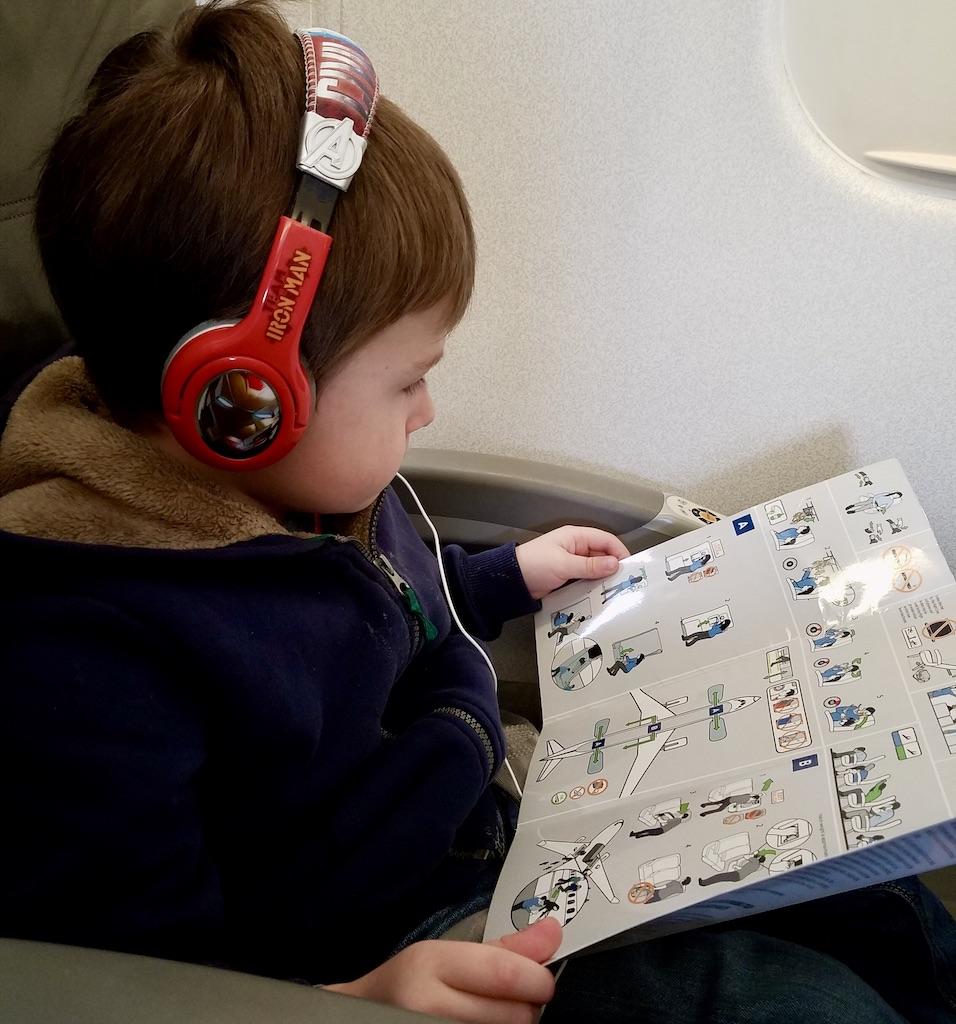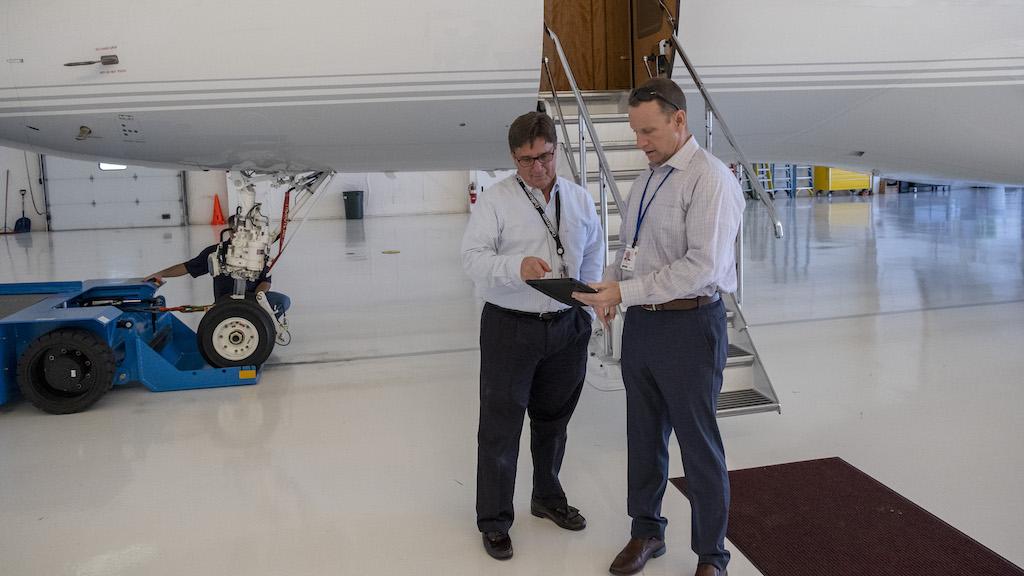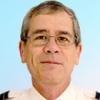
The idea of “being better” requires a motivating force and for most of us it is an act of responsibility to ourselves, our families and our employers. It is said that a prime motivator for those of us who started in the military was that we didn’t want to let our buddies down in combat. I think life outside the military can also be a battle at times and it is our responsibility to be there for our “buddies.”
Another friend of mine just retired after 30 years as a helicopter pilot flying for a large sheriff’s department. Like all members of law enforcement, his responsibility was to the public. Unlike those on the ground, however, his job was complicated by the fact that he was flying a rotary-wing aircraft day and night, in good weather and bad, at low altitudes in congested areas, and sometimes, while being shot at. His responsibility for operating safely was certainly complicated by the very nature of the job. He was challenged to balance the demands of the people in the organization with his sworn oath to “to protect and to serve.” It was a political organization and not everyone he flew with had what it takes to fly safely. There were times he had to face down higher-ranking officers who didn’t understand the risks involved when operating aircraft, but to do so in such a way to preserve the organization itself. I think many of us professional aviators face a similar challenge. We have a responsibility to those who employ us to fly our aircraft as they see fit. We do our jobs so that they can do theirs. But like my friend from the sheriff’s department, we must balance their demands against our judgement to be able to do that safely.
As an Air Force Reserve Officer Training Corps (AFROTC) cadet I naturally looked up to the upperclassmen cadets who seemed to be immersed in aviation and their future careers as pilots. One of the most driven even had a complete set of flight manuals for an airplane I would eventually fly, the KC-135A tanker. He was fun, charismatic and a natural leader. He started his Air Force pilot career as a primary instructor, training other pilots. I thought at the time he was biding his time until he would eventually discover his destiny as an operational pilot. But, as it turns out, he was too busy having a good time and, in his words, did not want to grow up. Even as a cadet I knew he was a heavy drinker, but it wasn’t until we spent a few months together in an Air Force leadership school that I discovered just how much of his life revolved around alcohol. He paid less and less attention to his duties as a professional pilot, and after an arrest for driving while intoxicated, he was deemed too irresponsible to be an Air Force officer and was discharged. The pattern repeated itself during his civilian career and he eventually died from the disease. As with the previous negative example, all who knew him thought it was a waste of talent.
Respect

A final trait of a person capable of being better is respect. You cannot motivate yourself to be a better professional if you don’t respect the profession, your peers and yourself. It is a sine qua non, without this, nothing.
Another friend of mine started out as a CFI and got his start in jets interning for a simulator training company. In this position his job was flying early model Gulfstreams as the expert in the right seat, helping clients to learn and pass check rides. The company recognized his talents as an instructor and promoted him to a management position in the training program. He rapidly became known not only for his skills as a pilot, but also as an instructor. He was quickly picked up by FAR Part 91 and Part 135 operators to fly a variety of aircraft. Through it all, he has maintained instructor status and has become a “go to” source for many in the Gulfstream G150 and G450 worlds. I know he has a great deal of respect for his profession because he takes all aspects of it seriously. Whether we are talking international flight operations or flying a glider in mountainous areas, he is a student, a practitioner and an instructor. He is always the first to compliment and the last to disparage. Those are fine traits for any professional.
While I have had the great fortune of knowing many fine, respectful people, I’ve also known a few on the opposite end of the spectrum. I spent a few years working for a pilot whose primary methods for instructing were sarcasm and ridicule. I often felt like a marriage counselor, trying to convince flight attendants that he wasn’t angry at them or first officers that he didn’t mean to openly insult them in public. He ended many of his critiques with, “I’m surprised you didn’t know that” or “anyone worth their paycheck knows that already.” When it came to light that he was wrong and the target of his derision was right, he quickly changed the subject. He vigorously enforced Standard Operating Procedures (SOPs) he favored and with equal energy disparaged those he didn’t like. I concluded that he did not respect the pilot profession as much as he did the ability to call himself a professional pilot. In the end he bounced from employer to employer, alienating a new crop of peers along the way, until he was asked to retire for good.
Balancing Professional and Personal Identities
If you examine the four traits here—honesty, diligence, responsibility and respect—it should become clear that each applies to every facet of your identity. If you lack any of these traits as a professional, you probably fall short of that regard in your personal life. But that brings up the question of balance. How do you balance the demands of your professional life with your personal life? Does your effort to become a better aviator necessarily subtract from your personal life?
Only you can answer the question for yourself, but since your chosen profession deals with life and death, your answer must consider the consequences of being wrong. Throughout the years my decision has been to study and devote whatever time it takes to satisfy all the legal requirements first, and then to satisfy myself that I am able to handle whatever is likely to come my way. The time left over goes to my family and what is left over after that can go to any personal hobbies.
Some will decide their family comes first, and that’s easy to say, but consider the consequences of that decision if you fall short as an aviator and it costs you your job or your life. Have you really put your family first? It is a profession you cannot apply a half-hearted effort to. But it is more than that. It is a profession you must continually strive to get better at just to keep up.
Being Better Than Whom?
A natural question in this quest of being better is “better than whom?” (Or “better than who?” depending on your grammar preferences.) My answer came to me in one of my Air Force squadrons. My introduction to the Boeing 747 was with a group of highly competitive pilots who vied to become the best the squadron had. We measured “best” in any category you could imagine, including the best landings, the best instrument approaches in the crummiest weather, the best air refueling, and even the best taxi technique. I found it fun but also tiring. Then one day, one of our pilots seemed to “switch on” and suddenly mastered everything. It became obvious he had a gift that none of us could comprehend. I overheard one of the pilots say, “I give up! What is the point when we can never do what he does?”
Having raised two children, I’ve heard this question repeated many times in different contexts. “Why can’t I run as fast as Ryan?” “Why is Sally number one at everything?” Both kids are grown adults now and are comfortable with their places in life. I don’t know if my answer to them had any impact, but it has helped me. I told them, “You don’t have to be better than anyone else. You just have to be better than you used to be.”
Being Better
When I started writing this five-part series about being better, I knew right off the bat that there is an element of hubris in me that deserves critique. “What gives you the right to tell us how to be better at anything?” That is a valid criticism, and the answer is this: “Nothing at all.” I’ve spent a lifetime trying to be a better aviator, husband, father and friend. I sometimes fall short in all categories. But I keep trying. And that is my message in the end: Keep trying.
See Being Better, Part 1 at: https://aviationweek.com/business-aviation/being-better-part-1









Comments
Mike Bade
DA-20, G1159, HS 125, G-IV, G-V, CL-604, BBD-700
CFII, IGI
Thank you